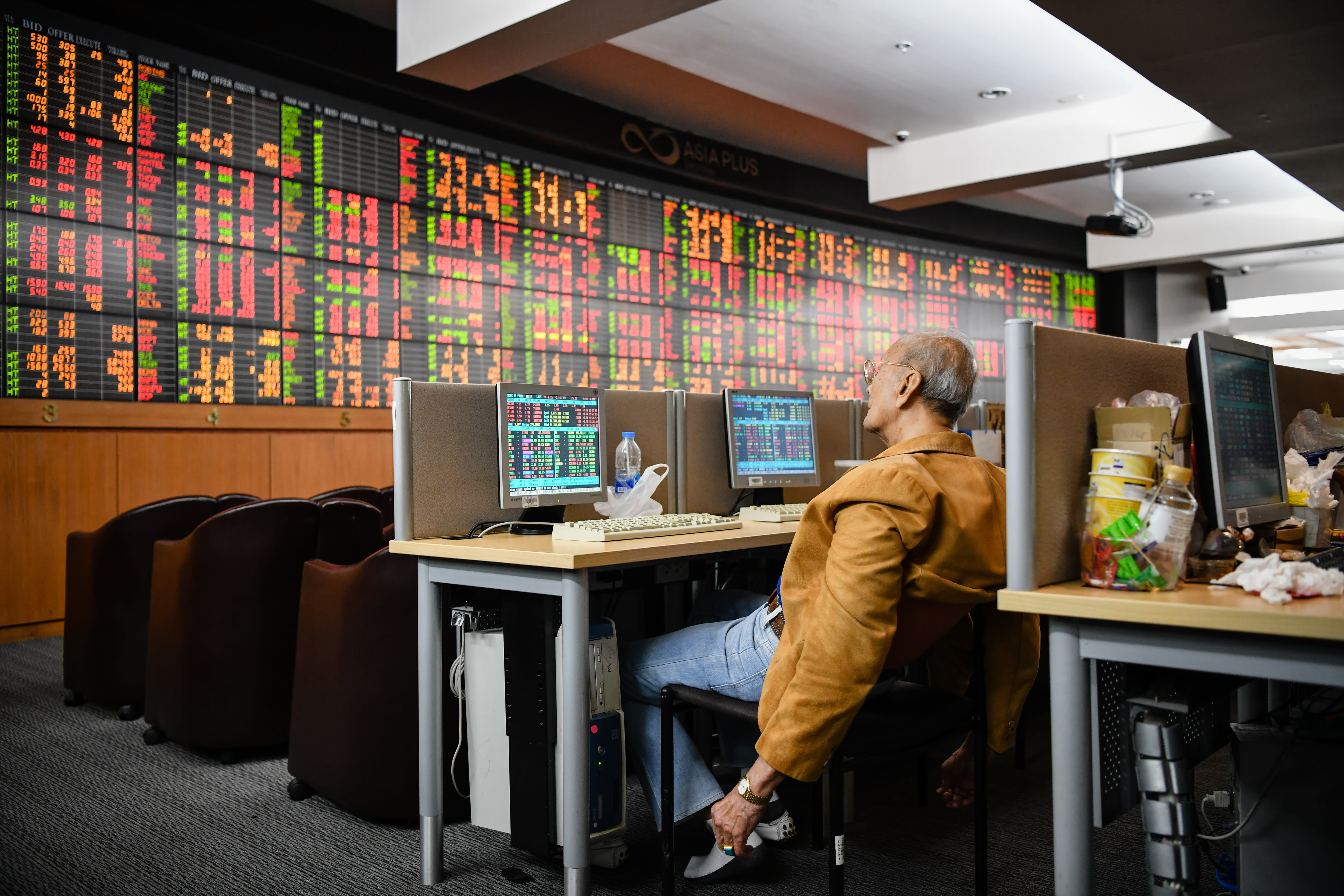
A Thai investor checks an electronic board showing stock prices at Asia Plus Securities amid Coronavirus threats in Bangkok.
Amphol Thongmueangluang | SOPA Images | LightRocket via Getty Images
Southeast Asia’s markets have been among the worst performing in the broader Asia Pacific region so far this year, with many stock indexes still deep in negative territory.
As of Friday morning Singapore time, Thailand’s SET Composite index, Singapore’s Straits Times’ Index, the Jakarta Composite index as well as the Philippines’ PSI Composite Index are still down more than 14% each for the year, according to data from Refinitiv Eikon.
That stands in sharp contrast to stocks in North Asia. The CSI 300 index, which tracks the largest stocks listed in mainland China, has risen more than 10% so far this year. Meanwhile, the Taiwan Weighted index has risen more than 1%, according to Refinitiv Eikon.
“The key reason is probably down to (Covid-19),” Daryl Liew, chief investment officer at REYL Singapore, told CNBC.
Liew said Southeast Asia has been a “laggard” in the region as the coronavirus situation in most of the countries is “still not really under control.”
Reuters reported Wednesday that Indonesia posted a record daily jump in coronavirus deaths. Indonesia currently has the highest number of confirmed cases in Southeast Asia with more than 81,000, according to data from Johns Hopkins University.
In contrast, North Asian economies such as China, Hong Kong and Taiwan appear to have managed the virus situation “relatively better,” Liew said. As a result, this has been reflected in the year-to-date stock market performance, he said.
The Hang Seng index in Hong Kong, however, still stood more than 11% lower for the year so far. A recent spike in cases has led to social distancing measures being reimplemented, including the temporary shuttering of Hong Kong Disneyland less than a month after it reopened. The city has also been rocked by issues beyond the coronavirus such as the passing of a controversial national security law.
There will be increasing differentiation for markets in Asia going into the second half of 2020, as the perils of the pandemic lingers on.
James Cheo
chief market strategist for Southeast Asia, HSBC Private Banking
Liew’s view was shared by HSBC Private Banking’s James Cheo, who told CNBC in an email that a “key differentiating factor” will be in how individual countries manage the Covid-19 pandemic.
“The better a country manages and recovers from the covid pandemic, the faster the economic recovery will be,” said Cheo, who is chief market strategist for Southeast Asia at the firm.
Cheo pointed to China as an example, saying the country was the first hit in the pandemic but was also the “one of the first to be out” due to its strong management of the situation. Furthermore, he added: “China has shown that they are able to suppress a second wave of the pandemic.”
“There will be increasing differentiation for markets in Asia going into the second half of 2020, as the perils of the pandemic lingers on,” the strategist said.
Looking ahead, REYL Singapore’s Liew said Southeast Asian economies will have to pick up in order for their respective stock markets to see a recovery.
Liew said Malaysia and Vietnam are “the only ones” with Purchasing Managers’ Index numbers showing expansion. While major indexes in both countries are still negative year to date, the two are also Southeast Asia’s top performing markets for the year so far, according to Refinitiv Eikon.
For the other countries in Southeast Asia, Liew said their manufacturing PMI numbers “have got to go above 50.” Levels above 50 in PMI readings signify expansion, while those below that figure represent contraction.
Meanwhile, HSBC’s Cheo acknowledged the “possibility of a turnaround,” but warned: “Given that markets across the world has run up significantly, it is likely Southeast Asian markets will be consolidating in a range-trading pattern, albeit one with a wide range fraught with many uncertainties.”
Source: CNBC
